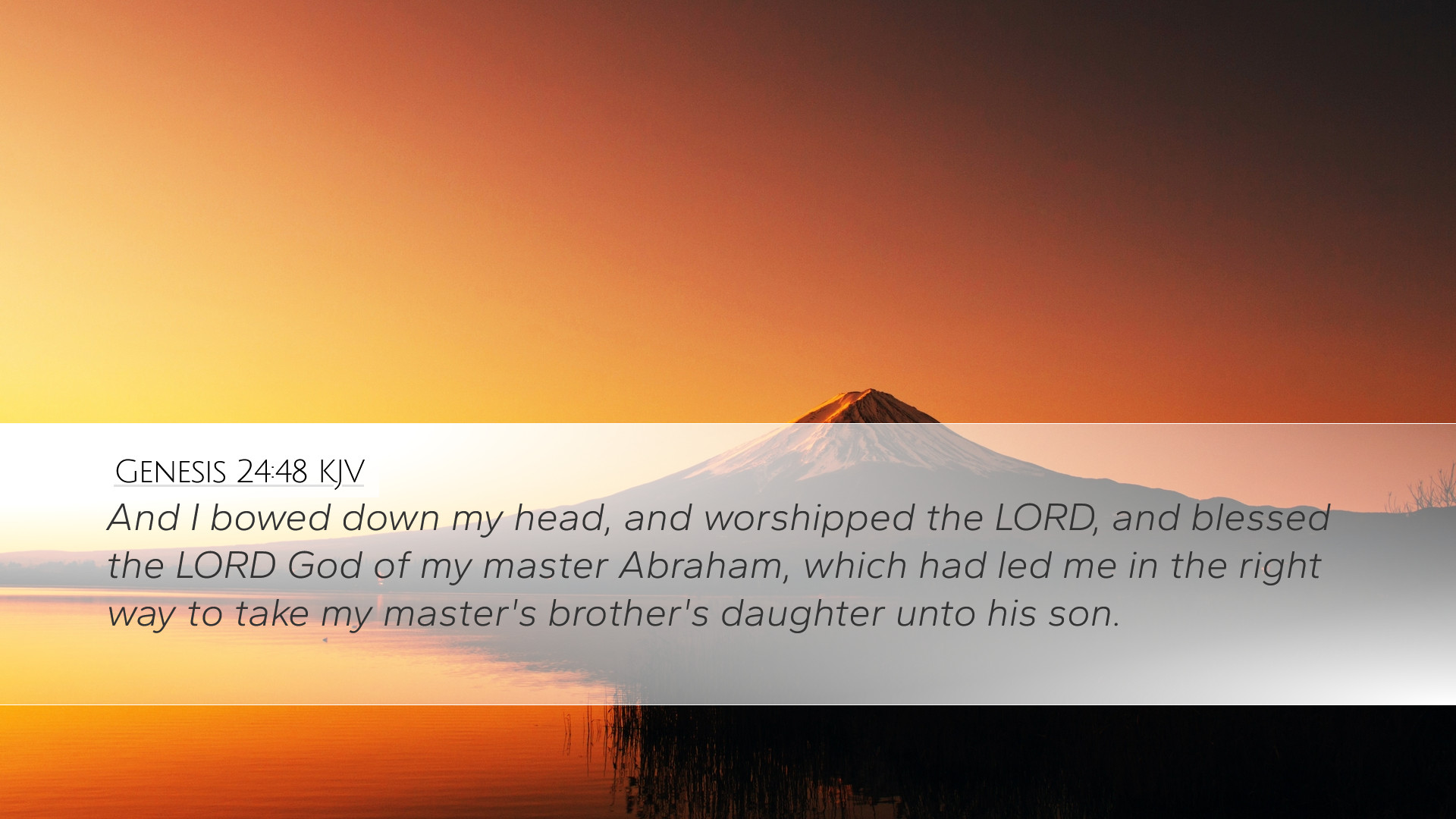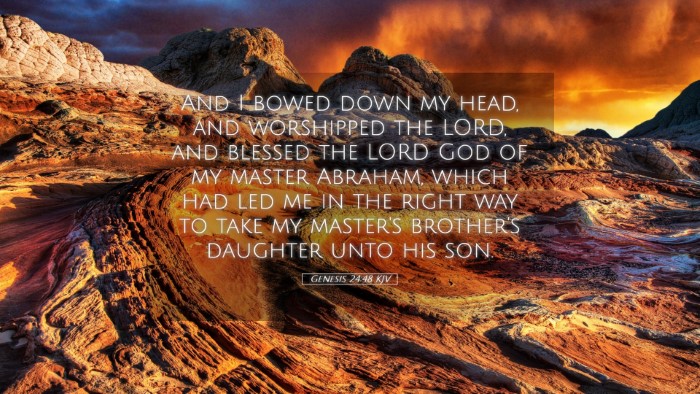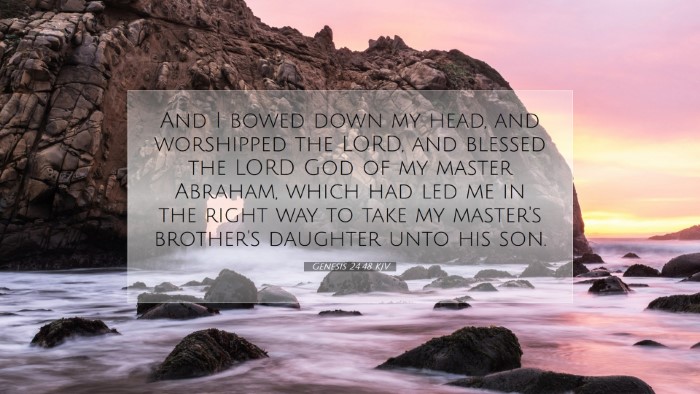Commentary on Genesis 24:48
Genesis 24:48 reads: "And I bowed down my head, and worshipped the LORD, and blessed the LORD God of my master Abraham, which had led me in the right way to take my master's brother's daughter unto his son." This verse captures a moment of gratitude and recognition of divine guidance.
In this commentary, we will draw upon insights from esteemed public domain theologians, including Matthew Henry, Albert Barnes, and Adam Clarke, to unpack the significance of this verse.
Contextual Overview
The context of Genesis 24 revolves around Abraham's servant, who is tasked with finding a wife for Isaac. This servant’s journey is steeped in prayer and supplication, demonstrating his reliance on God’s providence.
The verse represents a climactic moment where the servant acknowledges that God has directed his steps accordingly.
The Importance of Worship
In Genesis 24:48, the act of bowing his head and worshipping signifies not only reverence but also an expression of humility and gratitude. Matthew Henry emphasizes that true worship is birthed out of acknowledgment of God’s way in our lives.
It is an essential attitude for believers as they seek God’s direction.
Henry states: "Worship is the response of the heart to the revelation of God's goodness and mercy." This underscores the servant’s recognition of God’s role in bringing forth a favorable outcome.
Divine Guidance
The phrase "which had led me in the right way" speaks volumes about the servant's understanding of divine guidance. Albert Barnes highlights that this journey was not merely a physical one but a spiritual expedition
guided by God's hand. The servant acknowledges that the unfolding events were not coincidental but orchestrated by God.
-
Planning and Purpose: Barnes points out how God’s providence is intricately involved in the lives of believers, signifying that every event serves a purpose in His divine plan.
-
Prayerful Dependence: Before starting his mission, the servant prayed specifically for guidance, demonstrating the necessity of seeking God in every decision (Genesis 24:12).
Identity and Heritage
The latter part of the verse, "to take my master's brother's daughter unto his son," reveals the importance of familial ties in God's covenantal plan. Adam Clarke notes that Abraham’s lineage was crucial, as it fulfilled the promise
that his seed would inherit the land and blessings of God.
Clarke states: “This emphasizes the significance of maintaining a godly heritage, which was essential in God's redemptive plan.”
The careful selection of a wife for Isaac reflects a commitment to preserving the faith and integrity of God’s chosen people.
Lessons from the Servant
The servant exemplifies several characteristics worthy of emulation by believers today:
-
Faithfulness: He fulfills his master's request with dedication, reflecting an unwavering commitment to duty.
-
Prayerfulness: His dependability on prayer as a means of decision-making sets an example of spiritual reliance.
-
Gratitude: Acknowledging God's hand in the situation cultivates a heart of thankfulness and worship, which is vital in the believer's life.
Application for Today’s Believers
Genesis 24:48 resonates with contemporary believers in profound ways. Whether in the context of marriage, vocation, or any path in life, individuals are called to seek divine guidance through prayer and to recognize God’s
providence in their circumstances.
Through worship, believers are invited to express gratitude for the leading of the Lord, affirming that the paths they take are part of a divine design that ultimately aligns with God's will.
Conclusion
In conclusion, Genesis 24:48, as highlighted by Henry, Barnes, and Clarke, encapsulates themes of worship, divine guidance, familial fidelity, and unwavering faith. For pastors, students, theologians, and Bible scholars, this verse serves as
a powerful reminder to cultivate lives marked by prayerful dependence and grateful acknowledgment of God's intricate work in their lives.
As believers bow in worship, they reflect on the guiding hand of God in every aspect of their journeys, just as the servant did in this pivotal moment.


